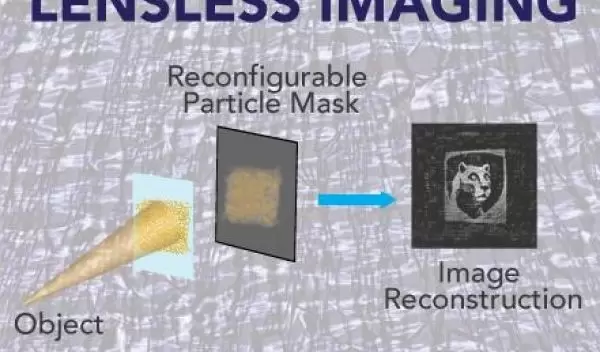
A multishot lensless camera in development could aid in disease diagnosis
Researchers at Penn State are developing a new type of imaging that does not require a lens and uses reconfigurable particle-based masks to take multiple shots of an object. The technology is expected to have uses in lower-cost and faster disease diagnosis and the enhancement of optical microscopy, and may lead to thinner cellphone technology. The research is supported by the U.S. National Science Foundation.
The researchers create a mask of microscopic gold wires and place it near the object that will be imaged. The mask scatters the light reflected off the object and an image sensor collects the light.
An electric current rearranges the particles in the mask, producing a new mask with every iteration, and the system records each new image. The multiple light captures are then computationally reconstructed into the original object image, resulting in highly improved resolution and quality.
"We are not the only group to do lens-free imaging," explained Jennifer Miller, first author of a paper in ACS Nano. "What is different about our work is that usually you would need to make multiple masks and physically move them around to get multiple images. This becomes bulky and expensive and negates some of the simplicity that is the advantage of lens-free imaging."
In typical microscopy, there's a trade-off between the field of view and the power of the resolution, so a 10x field is wider than a 100x field. By using a lens-free imaging technology, it is possible to combine a wide field of view with high magnification for lower-cost images and faster diagnosis of disease. That could be especially useful in developing countries where high-end microscopes are not available.
"NSF's Materials Research Science and Engineering Centers program, which funded this effort, supports collaborative, interdisciplinary research," said Miriam Deutsch, a program officer in NSF's Division of Materials Research. "The outcomes of this research, like much of the research at MRSECs, may have ripple effects across the science and technology community."


